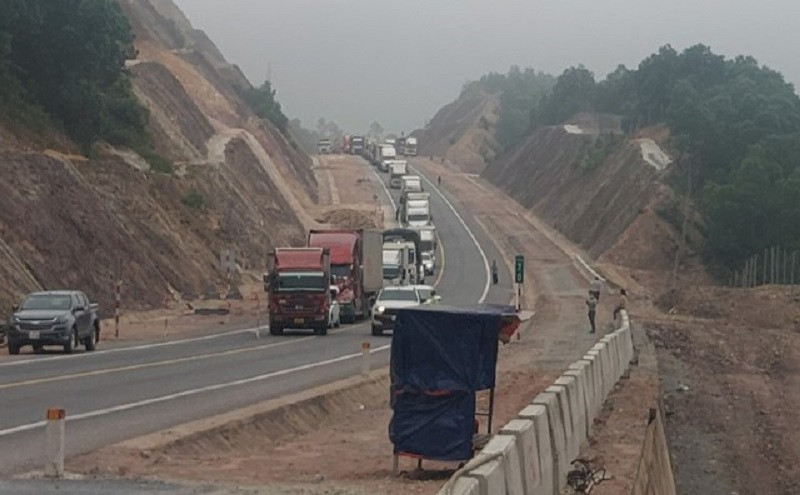
Monetary and fiscal policies applied since the beginning of the year aimed to increase the money supply to foster growth of the national economy.
After its regular August meeting, the government issued Resolution 144/NQ-CP which asks the State Bank of Vietnam (SBV) to adjust the risk ratios for various real estate market segments. The ratio will help determine businesses' credit ratings, which will be used by commercial banks to decide whether to lend them money and at what interest rate.
The resolution also asked the state bank to check the regulations related to lending to fund corporate bond investments and align those with the corporate bond market development policy.
SBV was also asked to gradually lower average lending interest rates and keep a close watch over the implementation of Circulars 02/2023 and 03/2023 to solve arising problems.
SBV has been urged to find solutions to speed up the disbursement of the credit package of VND40 trillion with an interest rate subsidy, the VND120 trillion package on funding social housing projects, and the VND15 trillion package to support forestry and seafood companies.
Decree 144 has been described as a necessary solution to increase the money supply, including the real estate sector.
Prior to that, as per the government’s request, SBV stopped applying some regulations on providing loans in accordance with Circular 06. The move was done to support real estate firm restructuring.
Circular 06 was promulgated with an aim to control credit quality by supervising clients’ use of loans to be sure the money was used for the right purposes.
However, about 90 percent of projects could not meet the requirements to borrow money in accordance with Circular 06. The removal of some articles of the legal document, therefore, will help businesses, investors and individuals to have opportunities to access credit from now to the end of the year.
The government earlier this year also released Decree 10 that helps remove administrative bottlenecks for real estate project investors; Decree 08/2023 on the management of the corporate bond market; Resolution 33 on solutions to real estate market problems; and Decision 388 on social housing development.
The newly promulgated legal documents aim at clearing hindrances in the real estate market, an important business field in the economy.
The real estate market became lackluster in mid-2022 when bank loan interest rates escalated. It was difficult to get capital for real estate projects because of the low liquidity of real estate and banks’ refusal to fund the real estate sector. If businesses were allowed to borrow bank loans, they had to pay high interest rates of 13-15 percent per annum.
However, interest rates have decreased in recent days, which will benefit the national economy in general and real estate firms in particular.
SBV has lowered operating interest rates four times this year (the re-discount interest rate was lowered from 4.5 percent to 3 percent; refinancing interest rate from 6 percent to 4.5 percent; and interbank overnight interest rate from 7 percent to 5 percent per annum).
Public investment
On August 31, 2023, Prime Minister Pham Minh Chinh pressed the button to kick off two bidding packages of Long Thanh International Airport project, with a total capital of VND42 trillion.
According to design, Long Thanh will be Vietnam’s largest airport, which can serve 100 million passengers and handle 25 million tons of cargo each year.
The Prime Minister requested the Ministry of Industry and Trade to start construction of component projects of the 500KV transmission line project capitalized at VND23 trillion in September 2023.
In late June, he issued an order to kick off the construction of Belt Road No 4 of 113 kilometers in Hanoi.
This year the government budgeted VND711 trillion for public investments, of which VND268 trillion was disbursed in the first seven months.
Manh Ha